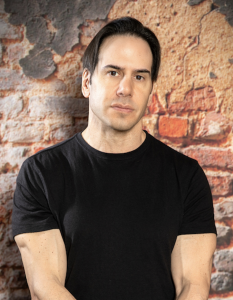
Board workgroup to recommend how the Bar should approach the circuit consolidation study
‘This board has been asked to make a comment from various constituents. I’m going to set up a workgroup to give us a recommendation on whether we should give a comment, [and] what the comment should say’
 The Board of Governors has formed a workgroup to determine if and how The Florida Bar should respond to an ongoing study that is considering if some of Florida’s 20 judicial circuits should be consolidated.
The Board of Governors has formed a workgroup to determine if and how The Florida Bar should respond to an ongoing study that is considering if some of Florida’s 20 judicial circuits should be consolidated.
At a September 8 meeting, President Scott Westheimer asked the workgroup and the Bar’s Legislation Committee to study the issue and begin drafting a proposed comment.
The workgroup consists of veteran board members Gregory Weiss of Stuart; Jeremy Branning of Pensacola; Jay Kim of Ft. Lauderdale; and YLD President Anisha Patel of Tampa.
Florida lawyers are following the issue closely, Westheimer said. He noted that the Florida Prosecuting Attorneys Association and the Florida Public Defender Association are opposed.
“This board has been asked to make a comment from various constituents,” Westheimer said. “I’m going to set up a workgroup to give us a recommendation on whether we should give a comment, [and] what the comment should say.”
The full Board of Governors will vote on whether to issue a comment, and to approve any subsequent comment, Westheimer said.
House Speaker Paul Renner, a Palm Coast lawyer, wrote to the Supreme Court earlier this year and, noting that the circuit boundaries haven’t changed since 1969, suggested that consolidation might create greater efficiencies.
Stressing that the Supreme Court has not formed an opinion at this time, Chief Justice Carlos Muñiz appointed a Judicial Circuit Assessment Committee.
His June 30 administrative order, AOSC23-35, directs the committee to make its recommendations by December.
The process is governed by Rule of General Practice and Judicial Administration 2.241, which establishes six factors that must be considered in any recommendation, including whether a proposed boundary revision would enhance “public trust and confidence.”
A similar Supreme Court assessment committee last year recommended adding a Sixth District Court of Appeal, the first new state appellate court since 1979.
Fourth District Court of Appeal Judge Jonathan Gerber chairs the 14-member committee. The panel includes appellate, circuit and county judges, a state attorney and public defender, a circuit court clerk, and Florida Bar board members Braxton Gillam of Jacksonville and Laird Lile of Naples.
Prosecutors, public defenders, lawmakers, lawyers, and community activists lined up for hours to express their opposition to consolidation when the assessment committee conducted a public hearing in Orlando on August 25.
In a letter to the committee, 17th Judicial Circuit Chief Judge Jack Tuter details his jurisdiction’s ability to meet or exceed each of the factors designated by Rule 2.241, and points repeatedly to statistics that show case closure rates “at or above 100% throughout all divisions.”
“In conclusion we believe the 17th Circuit continues to meet the needs of those we serve, have implemented changes to our case management system to be more efficient, and do not see a need to realign the circuit,” Tuter wrote.
The assessment committee meets next via Zoom on Friday, September 15, from 11 a.m. to 1 p.m. The panel is scheduled to review the feedback it has received, including public surveys. Registration is available through the committee’s website.
Originally published at https://www.floridabar.org/the-florida-bar-news/board-workgroup-to-recommend-how-the-bar-should-approach-the-circuit-consolidation-study/
The post Board workgroup to recommend how the Bar should approach the circuit consolidation study first appeared on City News Miami.
Law - City News Miami originally published at Law - City News Miami


